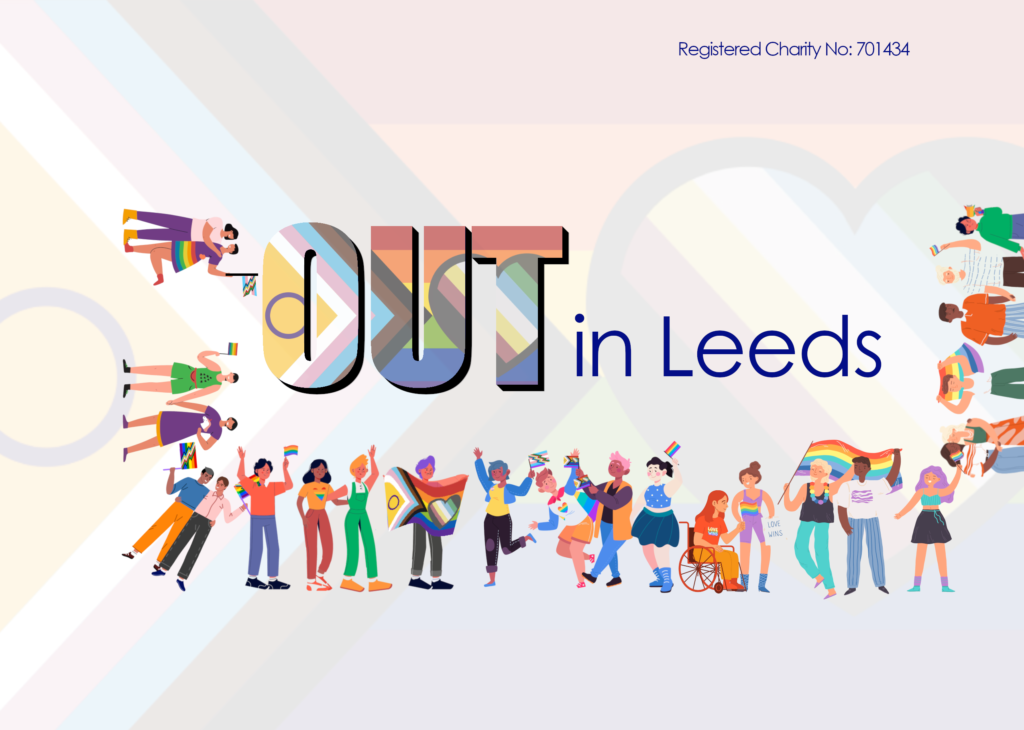Autism Acceptance Week – Catherine
Catherine, one of our one-to-one support workers, and group leaders, was diagnosed as autistic just one week ago at the age of 32. We were able to chat with Catherine this week, and here are some of her thoughts on autism and being diagnosed as an adult:
“I first suspected that I might be autistic a decade ago when my brother was diagnosed. I suddenIy saw a big weight lifted from him. He could now understand himself better. He felt like: “oh, maybe that’s why I struggle with certain things.”
It gave him a huge amount of confidence to then go and look into what he wanted to do. He is now really successful in his job and you could see the change of confidence that he had almost immediately.
I haven’t yet figured out what this diagnosis means to me.
In my 20s I spent 4 years trying and really fighting to get through my degree and I completed just about half of it in those four years, before dropping out of university. At that point I was utterly exhausted and I just thought “I can’t continue this fight”. It was really draining on my mental health, and my physical wellbeing wasn’t great, so I dropped out. I don’t know – if I’d have had the right support – if I’d have had autistic-friendly support – maybe I would have managed to get through that and graduated. Maybe I’d have done well.
I feel that now, 10 years later in my thirties, that I spent most of my 20s building up ways to cope. Creating masks, and trying to understand what I need around me. Masking played a big part in me getting a diagnosis. One of the things they ask (during the diagnosis process) is “Do you find it difficult to be yourself”? I think I’m at the point now that I don’t think that I could define what “myself” is, because masking is part of that. Masking is not something I consciously do. It’s a subconscious strategy. But it is also part of my identity.
My mum and dad used to describe me as a child as a ‘social chameleon’ who would fit into every situation. I would watch and learn and fit in. I’ve been doing it since I was tiny!
At People in Action, some of the autistic people that I have worked with, I have seen some of the things that they use to help them, and I thought “I like that” and I’ve just taken it on, so a lot of those things that you might think “oh, now [the diagnosis] has opened a whole world d of coping mechanisms”, No! I’m already using it!
Possibly not a lot will change, therefore, from the diagnosis. There are a few things where it will add weight and help me get reasonable adjustments. I struggle to make doctors’ appointments, for example. I can now say “I’m autistic, help me out”.
There are still quite a lot of people who see autism as a ‘bad thing’. If you go back several decades there was a lot of fear and stereotypes around autism which are still in the consciousness of a lot of people.
That negativity doesn’t exist much in the autistic community. Most autistic people I’ve met, I’m struggling to think of any who don’t see autism as a positive thing.
Outside of the community I have seen negativity with parents and in the general public. This idea that “oh it must be such a burden”. Yeah! But so is just being human! There are difficult things in people’s lives and autism makes some things harder. But I think it also makes some things way better.
One of the things I have found being a support worker is that I really relate to a lot of the people I work with, and I can really talk with them on the same level. I work with someone who is non-verbal. When I first worked with him he was nervous of me, but I could understand intuitively what he was nervous about and how we could approach that.
I have found with a lot of our autistic members that when they have told me things I have been able to relate really easily, and I don’t know if that’s true of non-autistic staff. I’d love to find out more about this from the perspective of non-autistic staff, but for me it’s really easy.
There’s a stereotype that autistic people are not empathetic, which from my perspective is not true at all. I see a lot of empathy from autistic people, and I feel that empathy, and I feel that I’m quite empathetic as well, although this stereotype persists.
There is a suggestion that it’s not an empathy problem, it’s a communication problem – non-autistic people communicate empathy in a different way from autistic people, and these two groups don’t necessary recognise how the other group is communicating empathy, but they see the other group as lacking empathy, which I think is really interesting and kind of makes sense to me. It’s fascinating.
I don’t know if my diagnosis will affect the way that I work. Maybe it will help me build trust with the people I work with, which I think is really important as a support worker.
I’ve seen a lot of articles written from people who were diagnosed later in life for various reasons, and a lot of them are really glad they went through the diagnosis process, and found that it changed their life. I’ve also heard stories from people who weren’t diagnosed until everything fell apart, and wished that they’d been diagnosed before it got to that point. Equally, there are probably stories of people to whom the diagnosis hasn’t made that much of a difference.
For me, I’ll just have to wait and see.”


